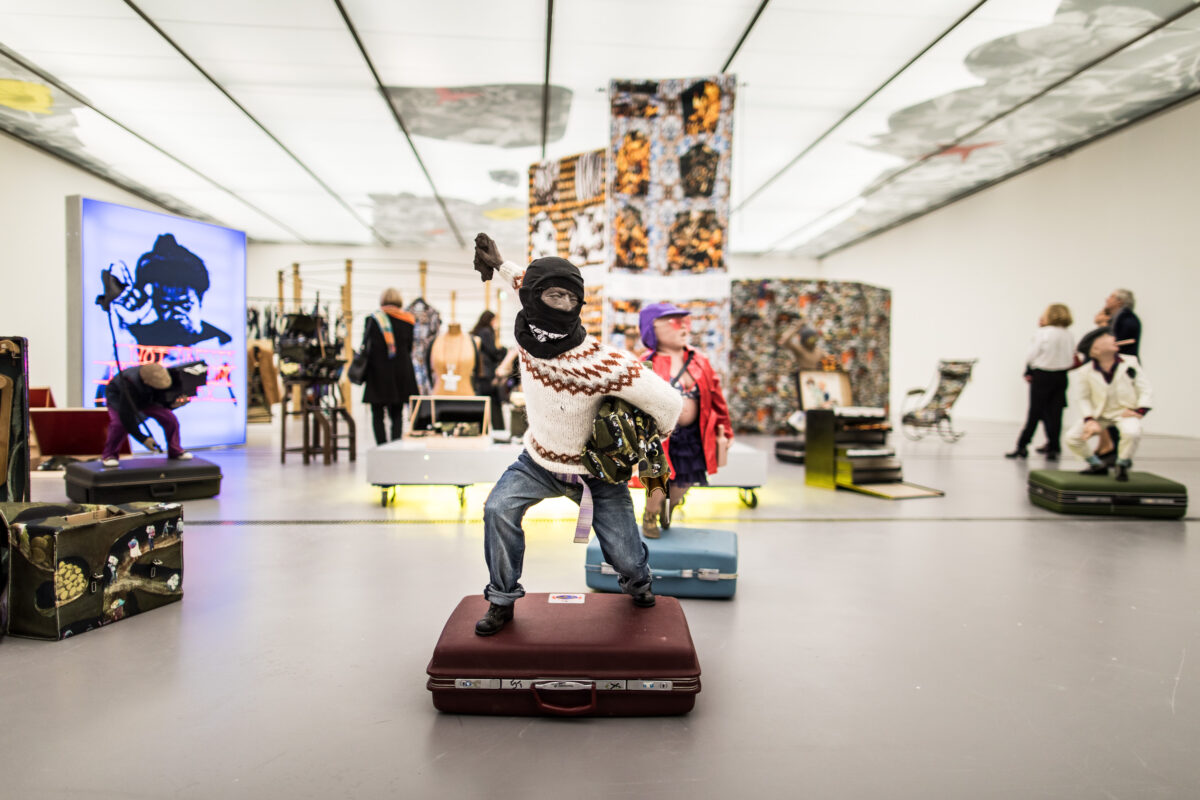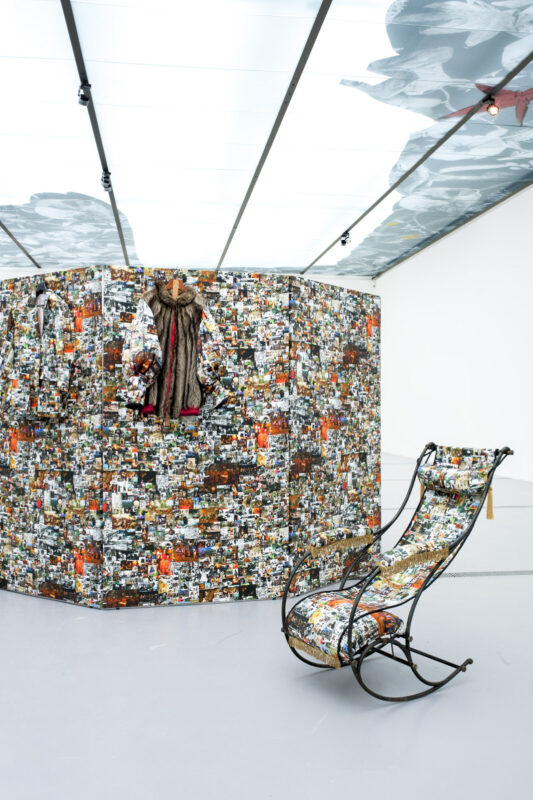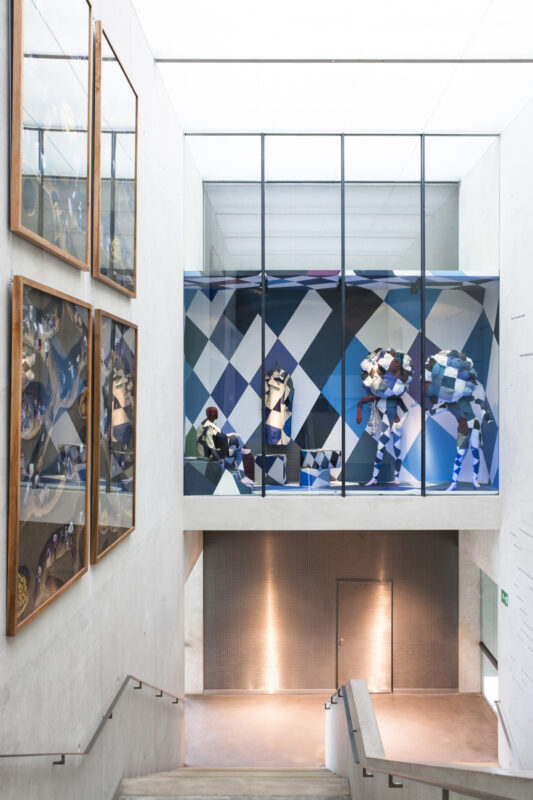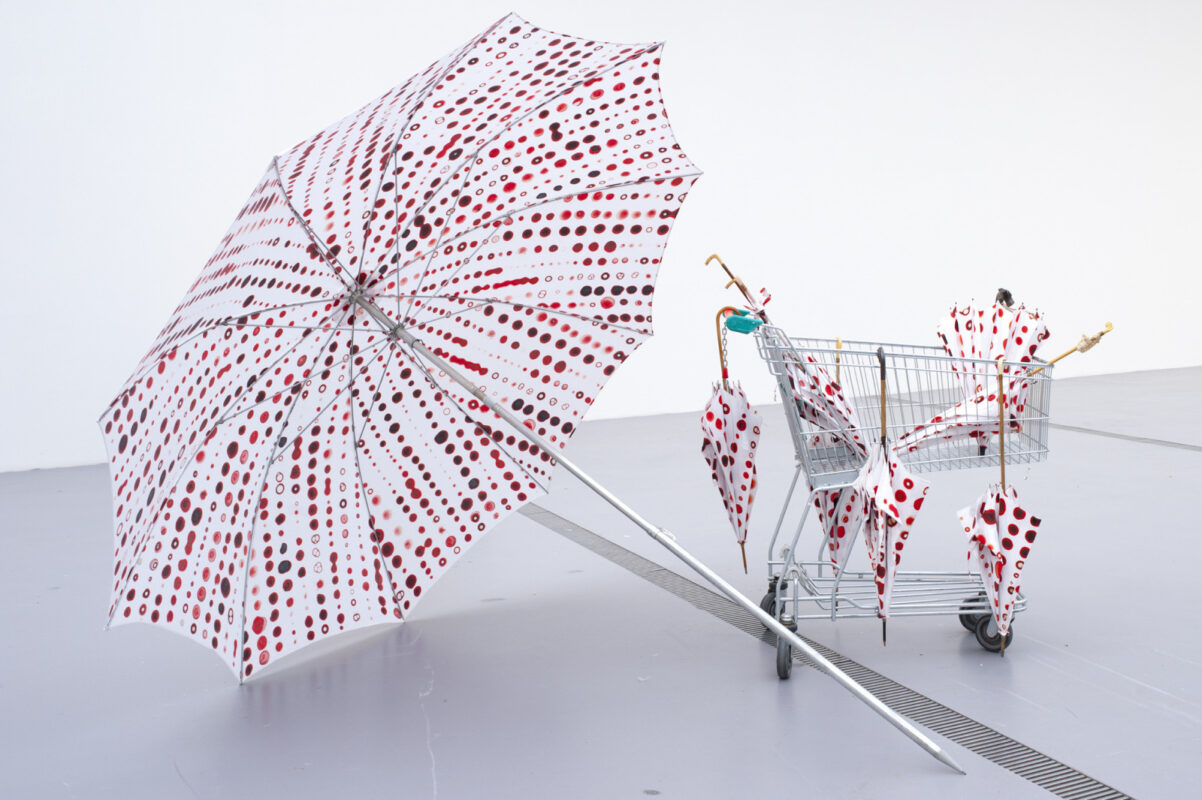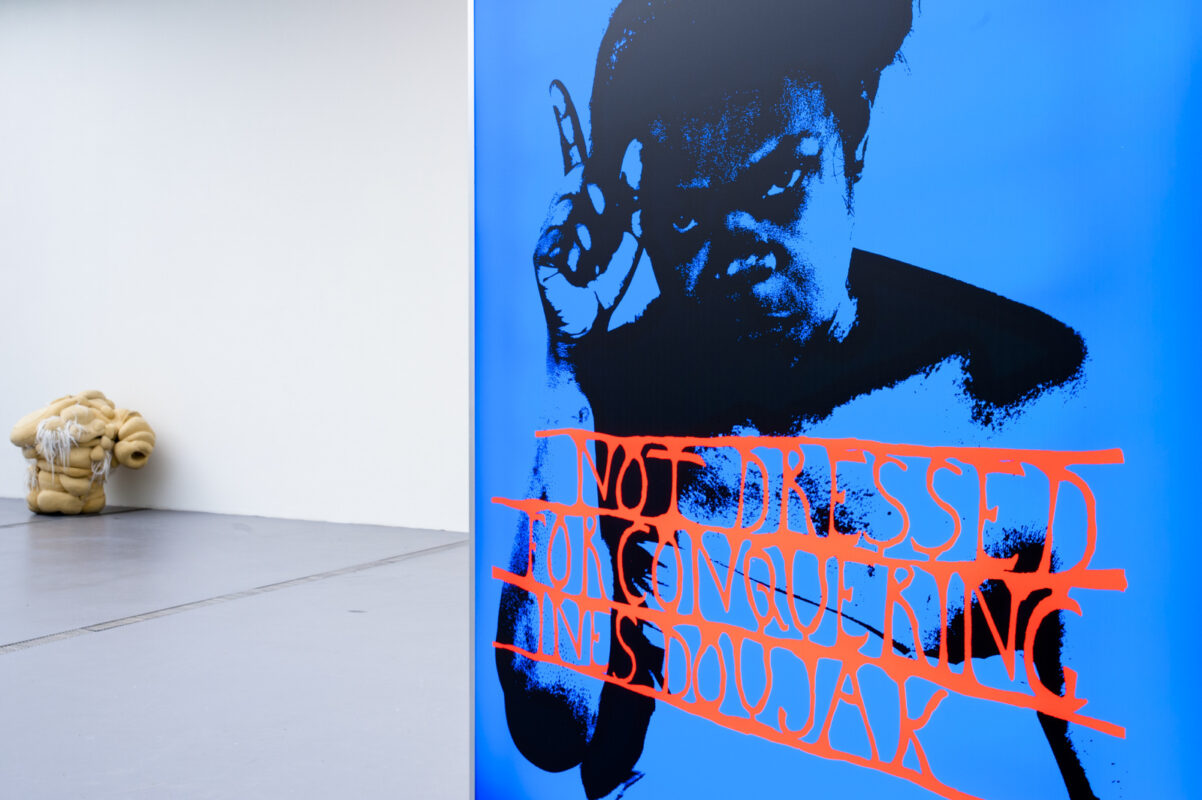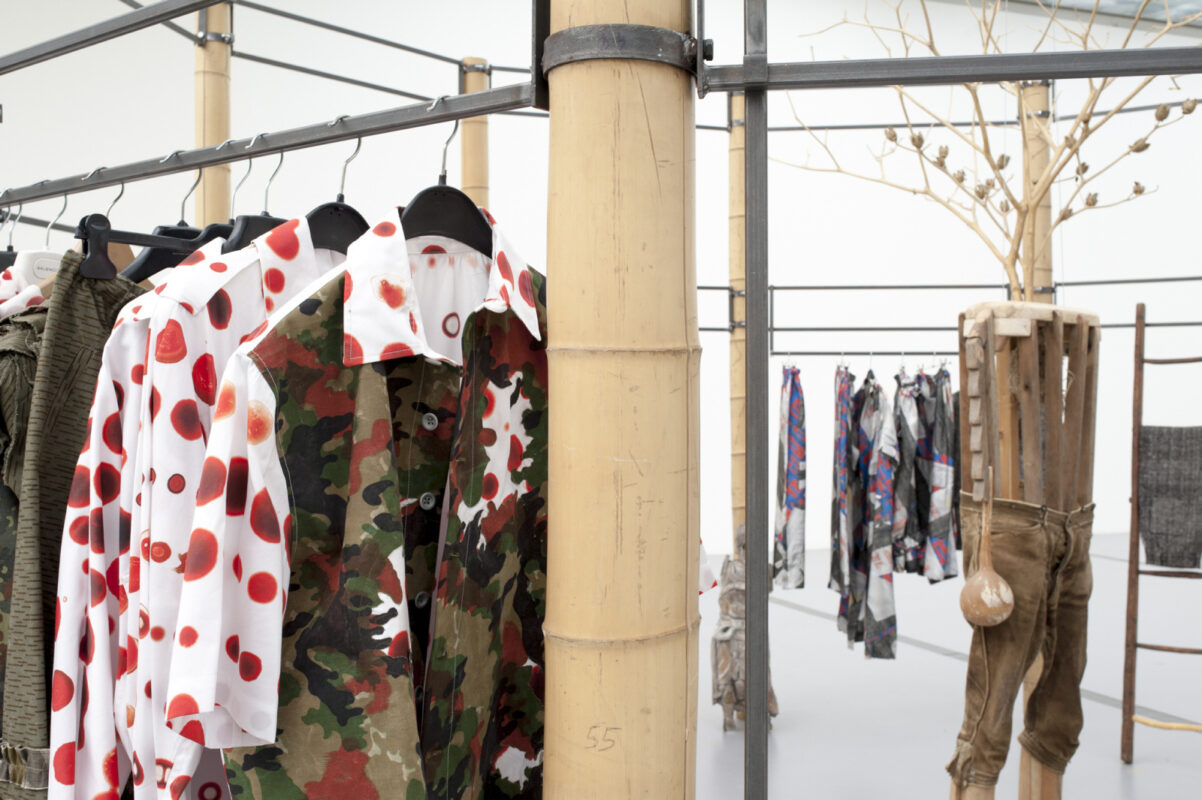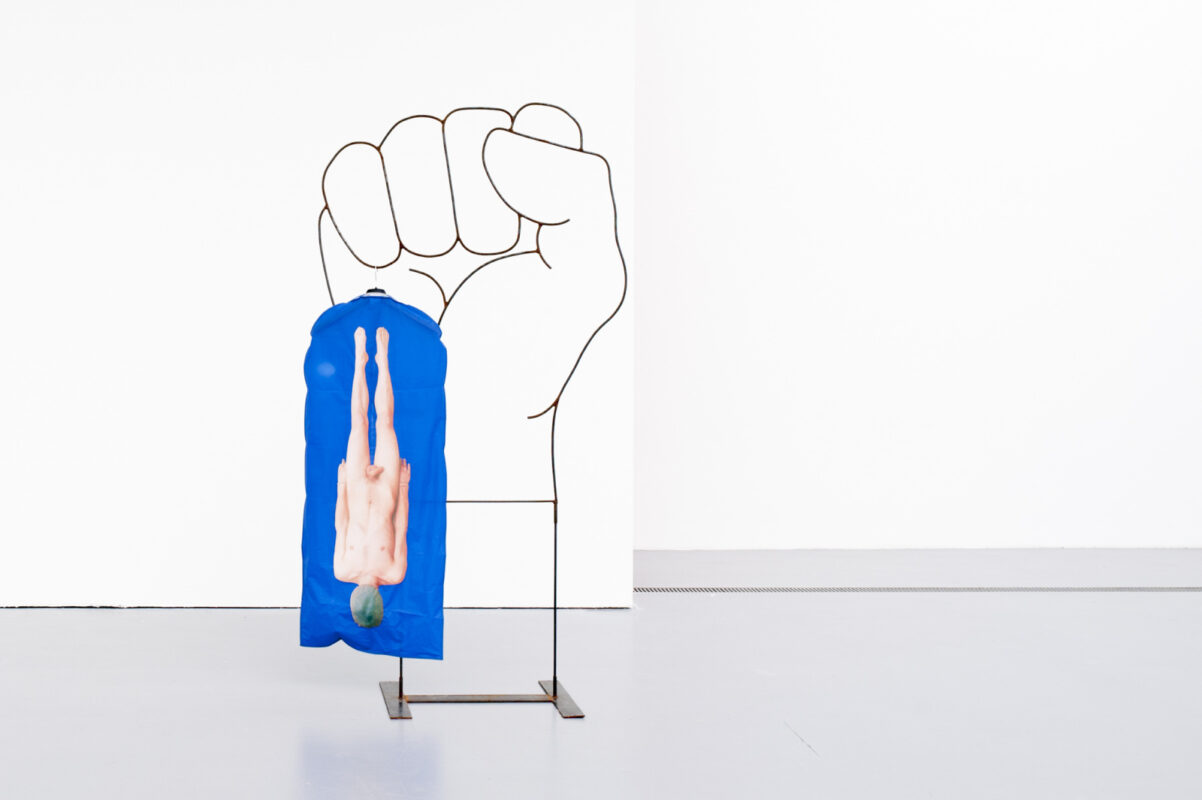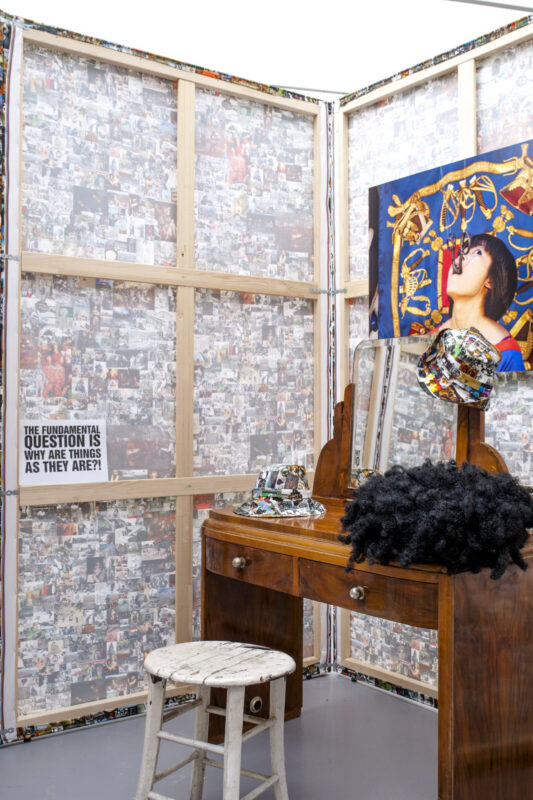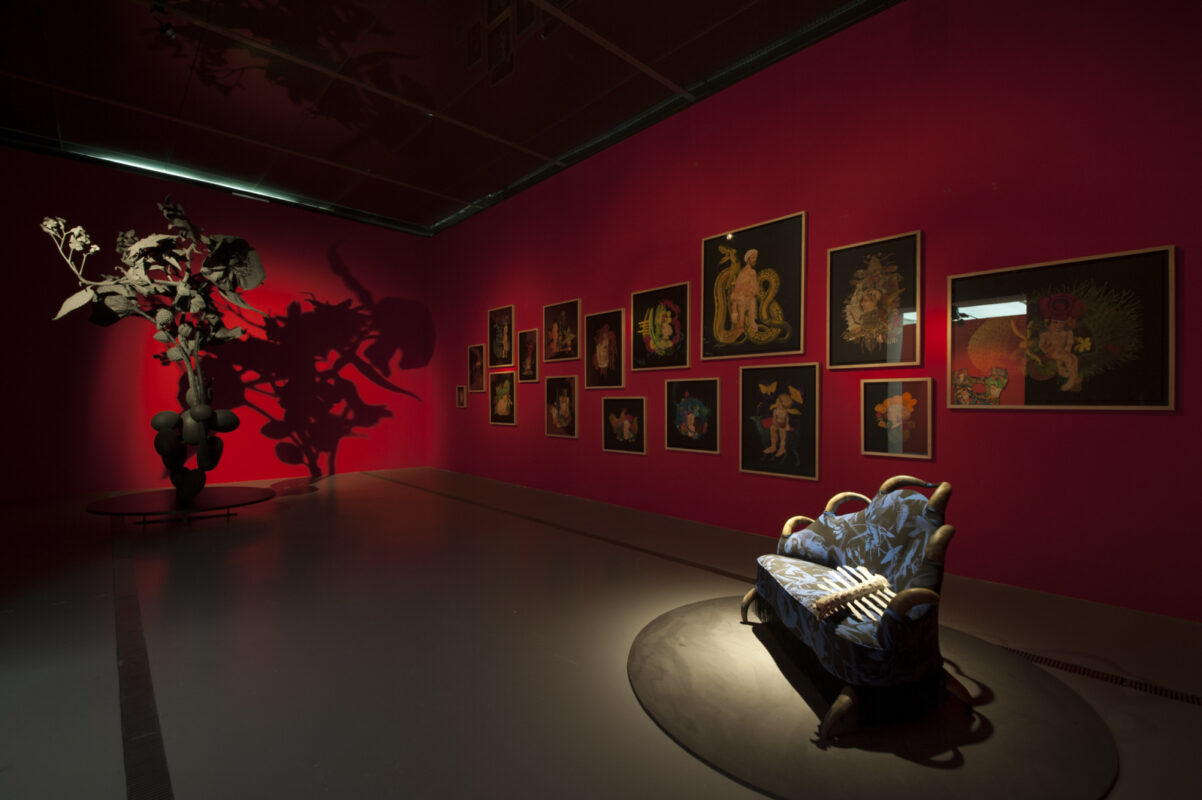Ines Doujak
Sale
The Large Hall of the Lentos is transformed into a fashion store! The Austrian artist Ines Doujak presents her highly unusual fashion collections. The exhibition space mutates temporarily into a changing room: visitors are welcome to touch, try on and take pictures. Citing and at the same time calling into question the glamour of the fashion world, Doujak’s works are characterized both by their determined criticism and their beauty. The artist brings into play the exploitative structures and the gender and class order hardwired into haute couture and the garment industry and deliberately blurs the demarcation line separating fashion statement and art.
The focus is on textile workers burnt to death in their factories, on total exhaustion as the lot of men and women in the low-wage sector, on dirty secrets, animal and human skins, Carnival and masquerade, drugs, war and the devil himself. Motifs and themes are directly inscribed on the textiles as carrier material. Fabrics, patterns, garments and accessories as well as texts, publications, objects, videos, dance interludes and pieces of music deal with the links between fashion, colonialism and globalized relations of production.
Parts of this continuously evolving fashion collection have already been shown in Stuttgart at the Württembergischer Kunstverein (Not Dressed for Conquering) and in Krakow at the Bunkier Sztuki Gallery of Contemporary Art (Masterless Voices).
Ines Doujak, born in Klagenfurt in 1959, is a graduate of the Hochschule für angewandte Kunst in Vienna. In addition to the fashion industry, the artist examines in her conceptual work stereotypes in the fields of gender roles and racism.
Curator: Hemma Schmutz
